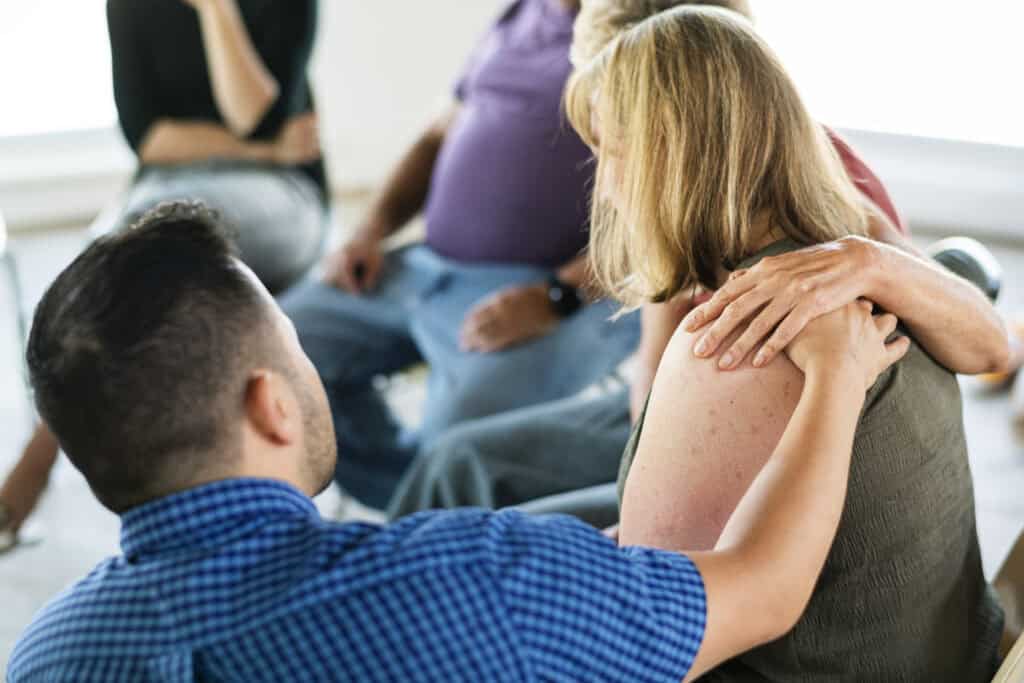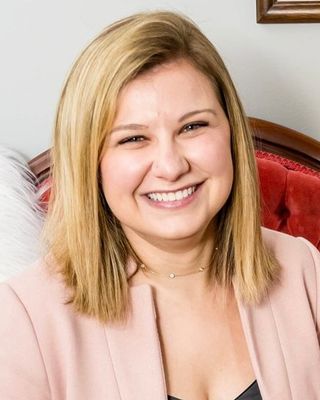If you have ever tried to help a family member (son, daughter, husband, wife, mother or father), or anyone struggling with addiction, you know this journey has its challenges. Not only can it be emotionally and physically taxing to support an addict, but addiction can often become financially taxing too.
While there is more conversation to be had with treatment professionals about your specific loved one’s situation, we are here to share valuable insight we have gained at Asheville Recovery Center through working with thousands of clients and their families to help you best support your loved one (and yourself!) during this challenging time. Below, you will find more about the benefits of setting boundaries with your loved ones, using positive reinforcements when your loved one is making progress, and supporting yourself during this challenging journey.

Help Tip 1: Setting Boundaries and Avoiding Enabling Behaviors
In most situations, people show others love by giving them things; it is human nature. Although, these actions show others love in most situations, when we are speaking of addiction, this can often be the very thing that keeps an addict or alcoholic in their active addiction for longer.
Although giving an addict a safe place to live, money for rent, groceries for their pantry, etc., feels like a loving action, to an addict, this can be the very thing that fuels their addiction to continue. We have found that if one’s basic needs are met, addicts and alcoholics struggle to find a sustainable reason to stop using. It is often when the addict runs out of resources, that they become willing to accept the help we are all trying to give them.
Setting boundaries and letting go of enabling behaviors is the first suggestion we have for you in supporting your loved one through their active addiction and into their recovery. This can be challenging to implement as a parent, spouse, child, or sibling. We don’t want to watch our loved one’s struggle, but when this action is done with the intention of guiding an addict to live free of substances, our actions are ultimately helping them achieve a healthy and happy future.
Help Tip 2: Using Positive Reinforcement to Increase Success
The second suggestion we as addiction professionals have for you is to create an environment for your loved one that is filled with positive reinforcement. What is positive reinforcement? A good example would be taking your loved one to dinner to celebrate their first month of sobriety. This concept was tested in depth by psychologist B.F. Skinner, who proved that praising and rewarding a loved one when they are making progress encourages that behavior to continue. In this example, celebrating your loved one’s first month of sobriety encourages them to seek another month of recovery. This simple type of support can really make a difference in your loved one’s chances at sustained sobriety.
Some simple ways you can implement positive reinforcement in your loved one’s recovery journey is celebrating when your loved one picks up a chip at a 12 Step meeting, praising your loved one’s decision to enroll in sober living, and holding a family celebration for your loved ones first year of sobriety. These simple actions are scientifically proven to increase your loved one’s chances of success.

Help Tip 3: Creating Your Own Recovery Community
The last suggestion we as addiction professionals have for you is to take care of yourself. We have all sat on a plane before and heard the flight attendant say “If there is an emergency on board, a mask will drop from up above. Please place the oxygen mask on yourself before helping those around you.” This analogy helps encompass the importance of helping yourself before you help your loved one. By putting the mask on yourself first, your needs are taken care of and then you are able to put the mask on your loved one too; or in recovery terms, you are in a better position to assist your loved one on their recovery journey.
Addicts and alcoholics are lucky enough to have 12 Step groups to seek support of people going through similar situations as them in groups like Alcoholics Anonymous (AA), Narcotics Anonymous (NA), Crystal Meth Anonymous (CMA), etc., and we always suggest that our clients loved ones utilize the resources that are available to them too.
Al-Anon, Nar-Anon, Family Anonymous, etc. are 12 Step Recovery groups that were created for friends and family members of addicts and alcoholics to receive their own support while navigating this challenging process. At these meetings, loved ones will meet a community of people who are also loved ones of addicts and alcoholics. One will meet others in similar positions who will share their personal experience about how they have navigated this challenging journey. At Asheville Recovery Center, we value community, and we want the loved ones of our clients to have the opportunity to have their own community too.
12 Step family meetings like Al-Anon and Nar-Anon are easy to find. Both of these groups hold in person meetings, likely close to your home, and online meetings via Zoom. You can find Al-Anon meetings at al-anon.org and Nar-Anon meetings at nar-anon.org
You are not in this alone
We want to acknowledge that being a family member of an addict can be immensely difficult at times. Watching your loved one face negative consequences and lose things that are important to them can be scary, sad, and exhausting. We at Asheville Recovery Center hope that these three suggestions; setting boundaries and avoiding enabling behaviors, using positive reinforcement to increase success, and creating your own recovery community, will make this journey both easier for you and aid in your loved one’s journey to a successful recovery.
About the Author

Dani Frank
Primary Therapist,
Clinical Social Work/Therapist, LMSW, LCSW-A, LCAS-A (she, her)
Dani is a Georgia native who began working in the substance abuse field as a behavioral health tech shortly after getting clean and sober in 2020. Dani has always had a passion for helping others, but her own struggle with substance abuse led her to get her Masters in Social Work from the University of Georgia, where she then began working in the field as an intern.
Dani has worked in several different treatment centers around Georgia and North Carolina, and is currently a Primary Therapist at Asheville Recovery Center. Dani strives to assist her clients and their families gain necessary tools for lasting sobriety. Dani is the host of her own podcast, Illuminating You, where her guests share stories of overcoming different struggles by remaining resilient. You can find more about Dani’s podcast on her website societyofauthenticliving.com.






